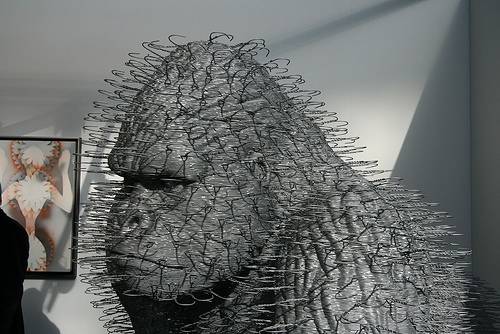It’s the ace of diamonds.
If Val couldn’t name the card knowing only its value, then it must be an ace, a queen, a 5, or a 4, as these are the only values that appear more than once.
If Colin knew that Val couldn’t name it, it must be red, as all the red cards have values (A, Q, 5, 4) that appear more than once.
When Val understands that the card must be red, she can exclude from her list of possibilities the queen, the 5, and the 4, as each of those cards appears in a black suit.
That leaves only the ace of diamonds.
Adapted from Julian Havil’s Impossible?, 2008.
UPDATE: Wait, this is cooked. Havil gives the problem but not the solution, and my solution above isn’t valid. Thanks, Ben and Andrew, for pointing it out. If anyone can find a valid solution, let me know and I’ll post it here. I don’t think one is possible.
FWIW, this is based on a more famous “impossible puzzle,” which is soluble but spectacularly hard.
UPDATE 2: In Canada or England, does the word “colour” mean “suit”? If so, the problem is soluble. It seems to have appeared originally on page 14 of a paper [PDF] by University of Victoria philosopher Audrey Yap. The first two steps above are right — Val can deduce that the card is red and must be A, Q, 5, or 4. The fact that she’s able to say “I know the card now” at this point means it can’t be an ace (because that value appears in both red suits). And the fact that Colin can then say “I know it too” means that it must be the five of diamonds. So, from the top:
Val says, “I don’t know what the card is.” (She knows it’s a 5, but there are two 5s.)
Colin says, “I knew that you didn’t know.” (He knows it’s a diamond, and thus an A or 5; but as each of these values appears more than once in the deck, he knows that Val won’t have enough information yet to identify the suit.)
Val says, “I know the card now.” (Colin’s remark has just told her that the card is red, because all the red cards in this deck have values that appear in multiple suits. And the only red 5 is 5♦.)
Colin says, “I know it too.” (He knows that Val was looking for an A or a 5, and that learning the card’s color was helpful. Thus she can’t have been looking for an A, as both aces are red. That leaves 5♦.)
So, if “colour” means “suit,” the answer is 5♦. If “colour” means “color,” then I still think it’s insoluble. Thanks to the many smart people who wrote in about this, especially Helge.





